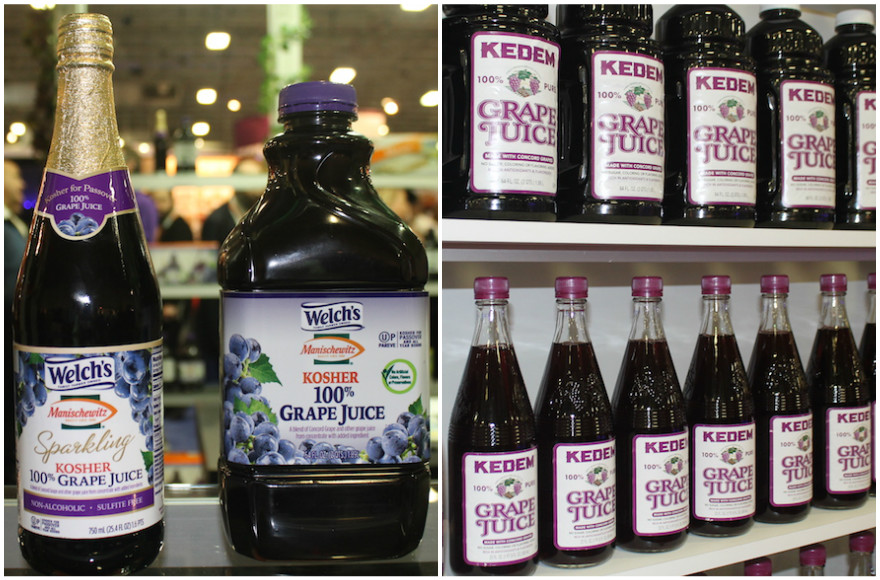For decades, America’s kosher grape juice market has been dominated by Kedem, whose sweet libations come in concord, blush, white, peach, diet and a variety of sparkling flavors.
But with U.S. sales flat when it comes to non-kosher grape juice, Welch’s, America’s largest grape juice company, is muscling its way into the kosher market.
Starting in January, Welch’s will begin selling 100 percent grape juice certified by the Orthodox Union as kosher for Passover and year-round use. The kosher juice is being produced in partnership with Manischewitz, the 120-year-old kosher food company known for its sweet concord wine and ubiquitous Passover matzah. The bottles will carry both the Welch’s and Manischewitz logos, and Manischewitz matzah boxes will carry ads for the grape juice.
“What’s very cool about it is taking advantage of what Manischewitz does for kosher consumers and what Welch’s does for grape juice consumers and really bringing that together,” Ike Kim, senior brand manager of Welch’s bottled juice business, told JTA.
Welch’s recipe won’t change, but the production process for its kosher juice line, including regular and sparkling, will be subject to the same strict production restrictions that apply to kosher wine: namely, that the juice passes exclusively through observant Jewish hands from the time it is pressed until it is pasteurized.
“It’s long overdue for Manischewitz to come out with a grape juice,” said David Sugarman, Manischewitz’s CEO.
Welch’s still will maintain its regular line of grape juices, which will not be certified as kosher.
Unlike the non-organic Kedem lines, Welch’s kosher grape juice does not use sulfites as a preservative, Lee said.
Kedem’s parent company, Royal Wine Corp., did not return a call seeking comment.
Both Kedem’s and Welch’s juice are considered 100 percent grape juice and fulfill the Jewish legal requirements necessary to use the drink for sacramental purposes like Kiddush and Havdalah.
This is not the first time that Welch’s has gone kosher. Some years ago the company tried a kosher grape juice, but it was discontinued relatively quickly. Welch’s hopes that by teaming up with Manischewitz, things will turn out differently this time around.
“The fact that we’re going to this market with Manischewitz is a huge differentiator from history for us,” Kim said. “Once we see how we perform on Passover, that will help us understand how much we can grow the kosher market.”
Keep Jewish Stories in Focus.
JTA has documented Jewish history in real-time for over a century. Keep our journalism strong by joining us in supporting independent, award-winning reporting.






